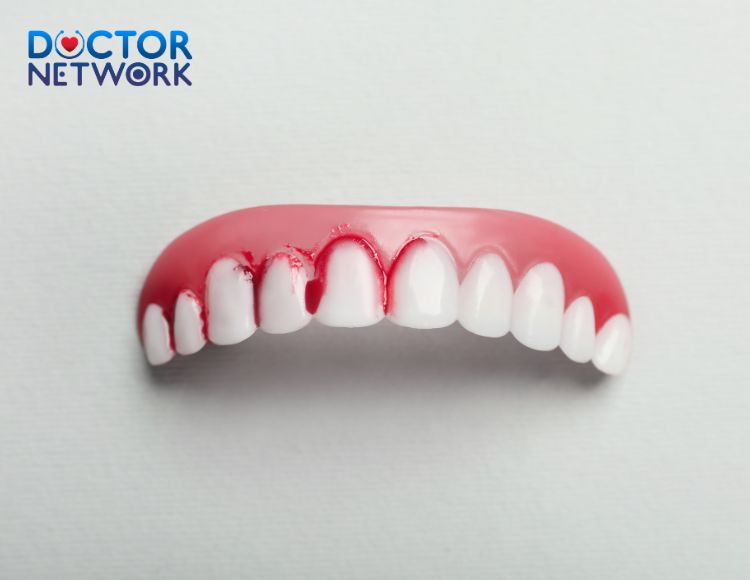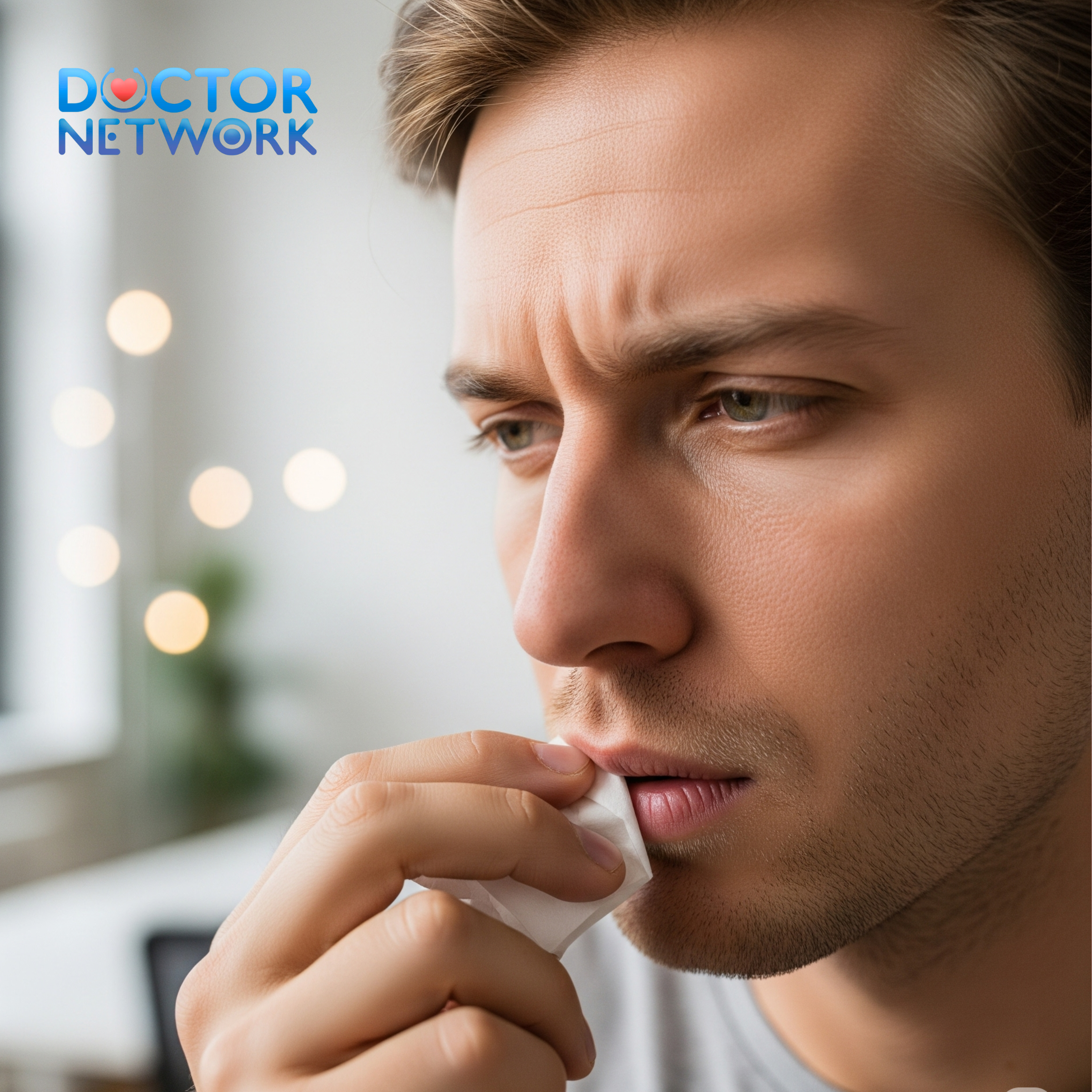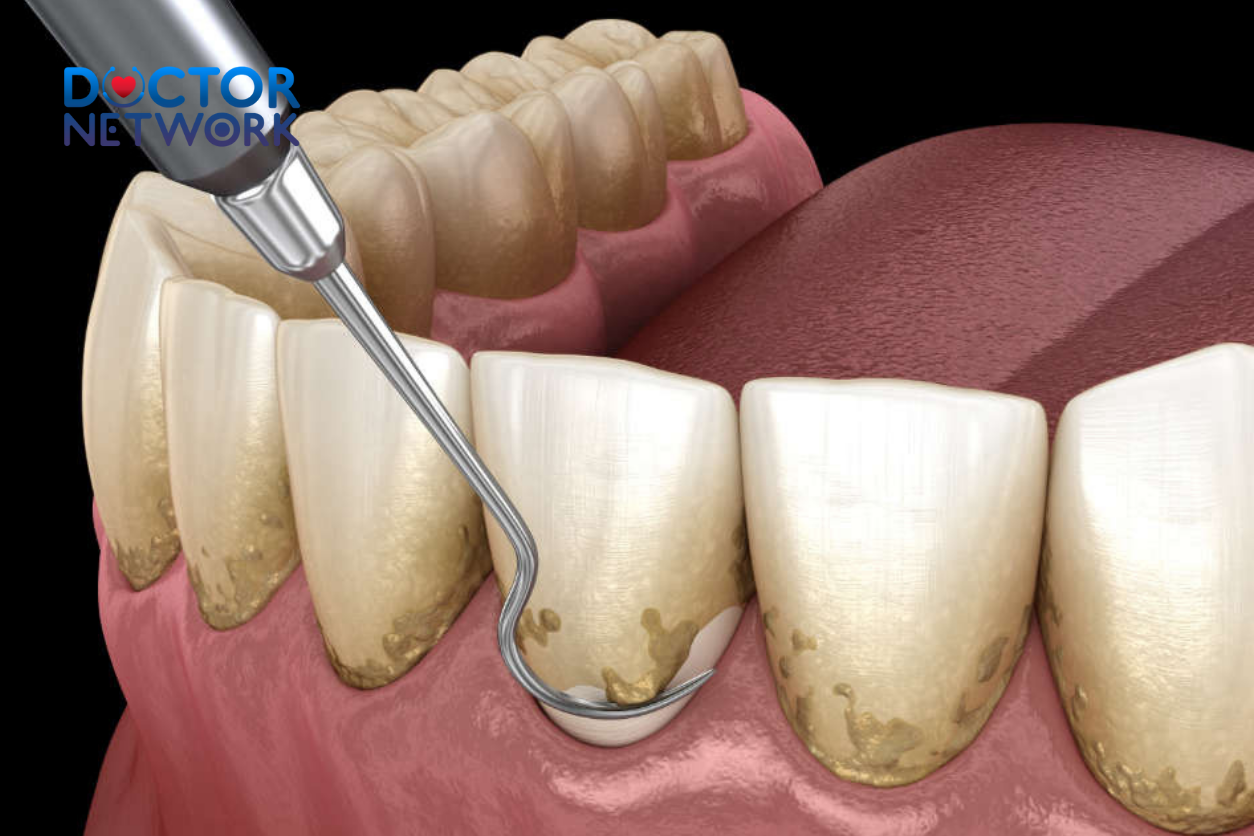“Swollen upper gums” is a condition characterized by inflammation and swelling of the gums in the upper jaw, causing pain and discomfort. This condition not only affects eating and communication but also poses risks for serious oral health issues. Let’s explore the causes, symptoms, and effective treatments and prevention methods for swollen upper gums.
Common Causes of Swollen Upper Gums
- Swollen Upper Gums – Gingivitis: This is the leading cause of swollen gums. Poor oral hygiene, leading to the accumulation of food and plaque along the gum line, allows bacteria to thrive and cause inflammation.
- Periodontitis: A more severe condition than gingivitis, periodontitis attacks the supporting tissues of the teeth, potentially causing gum recession, bone loss, and even tooth loss over time.
- Tooth Decay: Untreated upper tooth decay can lead to pulpitis and abscesses around the tooth root, resulting in swollen gums.
- Wisdom Teeth Eruption: Impacted or misaligned wisdom teeth can press against adjacent teeth, causing surrounding gums to swell and become inflamed.

Impacted or misaligned wisdom teeth can press against adjacent teeth
- Other Factors: Hormonal changes (such as during pregnancy or puberty), side effects of certain medications, and vitamin C deficiency can also increase the risk of swollen upper gums.
Recognizing Symptoms of Swollen Upper Gums
- Swelling: The gums appear red and swollen, which can be localized or widespread depending on the extent of the inflammation.
- Bleeding Gums: The gums bleed easily when touched, and in severe cases, may bleed spontaneously.

The gums bleed easily when touched, and in severe cases, may bleed spontaneously
- Bad Breath: Persistent bad breath indicates bacterial accumulation in the mouth.
- Pain: There is a noticeable pain in the swollen gum area, which may worsen when chewing.
- Gum Recession: Prolonged inflammation can cause the gums to recede, exposing the roots of the teeth.
Treatment for Swollen Upper Gums
Professional Dental Care:
- Regular Dental Cleanings: Removing plaque and tartar to reduce inflammation.
- Treatment for Tooth Decay and Periodontal Diseases: Addressing underlying issues that contribute to gum swelling.
- Antibiotics: Used when there is a severe infection.
- Wisdom Teeth Extraction: Recommended if impacted wisdom teeth are causing issues.
Home Care:
- Thorough Oral Hygiene: Brush teeth at least twice a day, use dental floss, and antibacterial mouthwash.
- Warm Salt Water Rinse: Temporarily reduces swelling and soothes irritated gums.
- Cold Compress: Applying a cold pack on the outside of the cheek can help alleviate pain (avoid direct application of ice to the gums).

Applying a cold pack on the outside of the cheek can help alleviate pain
Preventing Swollen Upper Gums
- Proper Oral Hygiene: The most crucial step to prevent gum diseases, including swollen gums.
- Regular Dental Check-Ups: Visit the dentist every six months to detect and treat oral health issues early.
- Balanced Diet: Include foods rich in vitamin C and avoid sugary foods and carbonated drinks.
When to See a Dentist
Do not ignore the following symptoms:
- Persistent swelling that doesn’t improve with home care.
- Severe pain and swelling extending to the face.
- High fever.
Frequently Asked Questions About Swollen Upper Gums
Question 1: Is swollen upper gums dangerous?
Swollen gums are generally not dangerous in the early stages. However, untreated inflammation can develop into more serious conditions like periodontitis, leading to bone loss and tooth loss. Early diagnosis and treatment are crucial.
Question 2: How can I treat swollen upper gums at home?
Home care can temporarily reduce swelling but cannot replace professional treatment. Effective home care includes:
- Proper brushing and flossing.
- Rinsing with warm salt water.
- Applying cold compresses to reduce pain.
Question 3: How long does it take for swollen upper gums to heal?
Healing time depends on the cause and severity. Mild gingivitis can improve in a few days with good home care, while more severe cases may require professional treatment and take longer to heal.
Question 4: Does swollen upper gums during pregnancy affect the baby?
Pregnant women are at higher risk for swollen gums due to hormonal changes. While it usually doesn’t severely affect the baby, it increases the risk of other oral health issues. Pregnant women should consult their dentist for advice and regular check-ups.
Question 5: How can I differentiate between gingivitis and periodontitis?
A dentist’s evaluation is necessary to distinguish between the two. Signs suggesting periodontitis include:
- Severe bad breath.
- Gum recession.
- Loose teeth.
Scientific Evidence on Swollen Upper Gums
- Impact of Oral Hygiene:
- Study: “The Effect of Oral Hygiene on Gingival Inflammation: A Systematic Review and Meta-Analysis” (Journal of Clinical Dentistry)
- Conclusion: Poor oral hygiene is the primary cause of gingivitis, leading to swollen upper gums.
- Relationship Between Swollen Gums and Periodontitis:
- Study: “The Relationship Between Gingival Recession and Periodontitis: A Cross-Sectional Study” (Journal of Periodontology)
- Conclusion: Untreated swollen gums can progress to periodontitis, a severe dental condition.
- Effect of Hormonal Changes:
- Study: “The Effect of Pregnancy on Gingival Health: A Clinical and Microbiological Study” (Journal of Women’s Dentistry)
- Conclusion: Hormonal changes during pregnancy increase the risk of swollen gums.
- Effectiveness of Treatment Methods:
- Study: “Efficacy of Scaling and Root Planing for the Treatment of Chronic Periodontitis: A Systematic Review” (Cochrane Journal)
- Conclusion: Regular dental cleanings are effective in treating gingivitis and swollen upper gums.
Swollen upper gums cause significant discomfort and reduce the quality of life. Understanding the causes and timely treatment helps prevent serious complications and ensures optimal oral health. Good oral hygiene practices are key to preventing swollen gums and other dental issues.
References:
https://www.medicalnewstoday.com/articles/swollen-gums
https://www.humana.com/dental-insurance/dental-resources/how-to-treat-swollen-gums
Kiểm Duyệt Nội Dung
More than 10 years of marketing communications experience in the medical and health field.
Successfully deployed marketing communication activities, content development and social networking channels for hospital partners, clinics, doctors and medical professionals across the country.
More than 6 years of experience in organizing and producing leading prestigious medical programs in Vietnam, in collaboration with Ho Chi Minh City Television (HTV). Typical programs include Nhật Ký Blouse Trắng, Bác Sĩ Nói Gì, Alo Bác Sĩ Nghe, Nhật Ký Hạnh Phúc, Vui Khỏe Cùng Con, Bác Sỹ Mẹ, v.v.
Comprehensive cooperation with hundreds of hospitals and clinics, thousands of doctors and medical experts to join hands in building a medical content and service platform on the Doctor Network application.

























